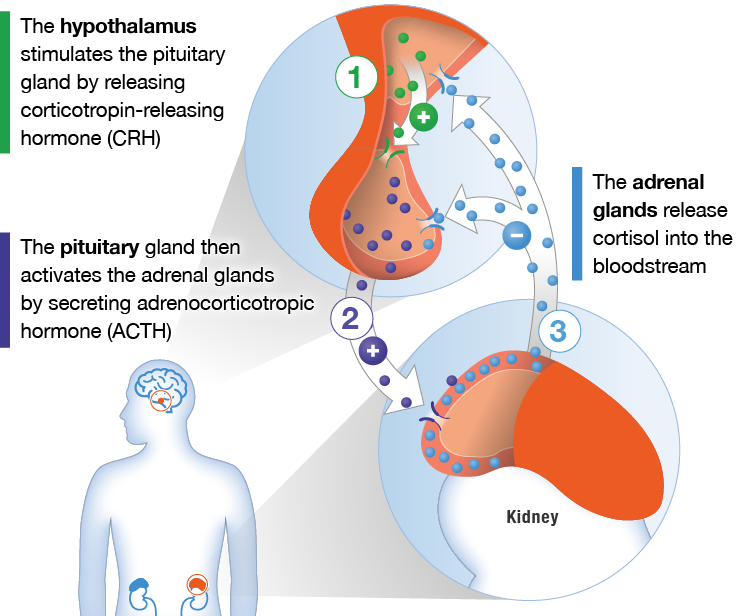Must Read! Cortisol: Endocrinologists From Imperial College London Say High Cortisol Blood-Levels Linked To Greater Death Risk From COVID-19
Source: Cortisol Jun 19, 2020 5 years, 8 months, 6 days, 6 hours, 11 minutes ago
Cortisol: Medical Researchers from Imperial College London say that COVID-19 patients with extremely high levels of the stress hormone cortisol in their blood are more likely to deteriorate quickly and die.
The hypothesis was based on their research findings which are published in the journal: Lancet Diabetes and Endocrinology.
https://www.thelancet.com/journals/landia/article/PIIS2213-8587(20)30216-3/fulltext
The research, led by NIHR Research Professor Dr Waljit Dhillo from Imperial College London and Consultant Endocrinologist at Imperial College Healthcare NHS Trust, provides the first data to show that cortisol levels are a marker of the severity of the illness. The study team suggest they can be used to identify those patients who are more likely to need intensive care.
 How Cortisol Is Produced In The Body
How Cortisol Is Produced In The Body
Typically the steroid hormone Cortisol is produced by the body in response to stress such as illness, triggering changes in metabolism, heart function and the immune system to help our bodies cope. Our cortisol levels when healthy and resting are 100-200 nm/L and nearly zero when we sleep.
However when ill patients have low levels of cortisol, it can be life threatening.
On the other hand, excessive levels of cortisol during illness can be equally dangerous, leading to increased risk of infection and poor outcomes. In the new observational study of 535 patients, of whom 403 were confirmed to have COVID-19, cortisol levels in patients with COVID-19 were significantly higher than in those without. The levels in the COVID-19 group ranged as high as 3241, considerably higher even than after major surgery, when levels can top 1000.
It was observed that amongst the COVID-19 patients, those with a baseline cortisol level of 744 or less survived on average for 36 days. Patients with levels over 744 had an average survival of just 15 days.
Dr Dhillo, Head of Division of Diabetes, Endocrinology and Metabolism at Imperial College London, told Thailand Medical News, "From an endocrinologist's perspective, it makes sense that those COVID-19 patients who are the sickest will have higher levels of cortisol, but these levels are worryingly high. Three months ago when we started seeing this wave of COVID-19 patients here in London hospitals, we had very little information about how to best triage people. Now, when people arrive at hospital, we potentially have another simple marker to use alongside oxygen saturation levels to help us identify which patients need to be admitted immediately, and which may not. Having an early indicator of which patients may deteriorate more quickly will help us with providing the best level of care as quickly as possible, as well as helping manage the pressure on the NHS. In addition, we can also take cortisol levels into account when we are working out how best to treat our patients."
The research was funded by the National Institute for Health Research (NIHR) and the Medical Research Council, involved 535 patients admitted to three London hospitals: Charing Cross, Hammersmith and St Mary's, with suspected COVID-19 between 09 Marc
h and 22 April 2020. A COVID-19 swab test and routine blood tests including a baseline measurement of cortisol levels were performed within 48hrs of admission.
It was observed that over the study period, just under 27 per cent of the COVID-19 group died during the study period compared to just under 7per cent of the non-COVID-19 group.
Dr Dhillo and his team hope that their findings can now be validated in a larger scale clinical study.
Using cortisol as another biomarker when healthcare professionals have to make decisions who to admit during a crisis might be another viable option.
For more on
Cortisol and COVID-19, keep on logging to Thailand Medical News.
